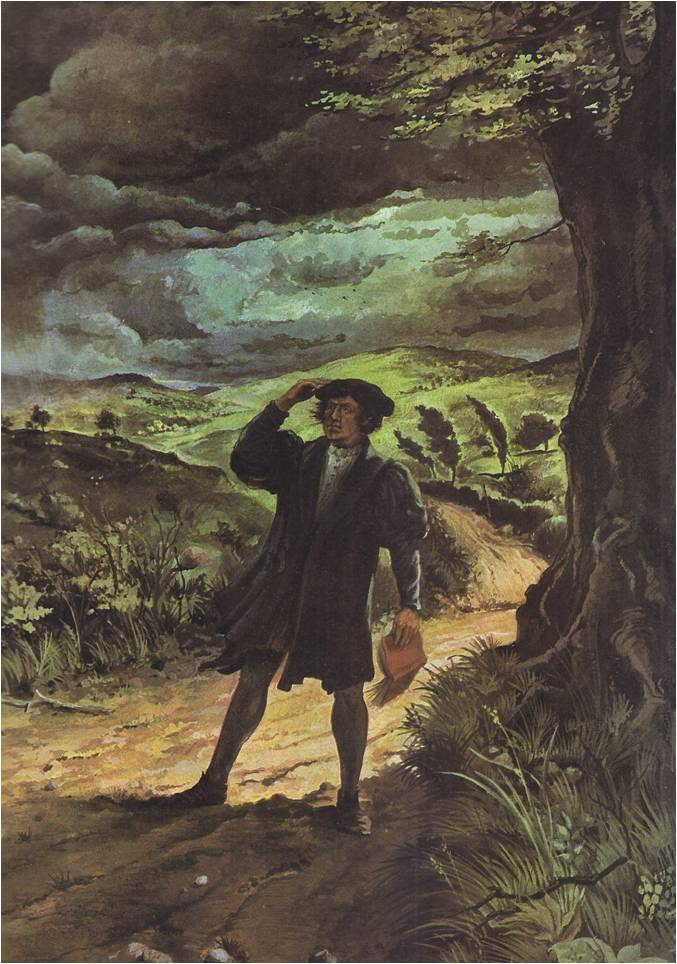ON A SULTRY JULY DAY IN 1505, a young law student, Martin Luther, was walking along a country road in Germany when a summer storm blew up. The air grew heavy and black clouds filled the sky. Before Luther could take shelter, thunder began to crash. A bolt of lightning struck the road almost at his feet. Thrown to the ground, he lay shaking, not certain whether he was alive or dead. “Help me, Saint Anne,” he cried, “help me and I will become a monk.” After a moment, Luther’s trembling stopped. He stood up, found that he was not hurt and continued his walk toward Erfurt, the town in which he attended the university. He did not forget his promise to Saint Anne. He spent a week or so thinking and making plans. Then he told his professors that he could come no more to their classes. He sold his books, bade farewell to his friends and went to the monastery of the Augustinian friars and said that it was his wish to become a monk. When Martin’s father, old Hans Luther, heard what his son had done, he was puzzled and angry. Hans had worked hard all of his life. Though his ancestors had been peasant farmers, he had managed to set himself up in a little business. But he was far from rich; he had scrimped and saved to send his son to school and to the university. He had long looked forward to the time when Martin would be a lawyer, a man of standing who would make his parents proud and earn the money to care for them in their old age. Now those plans were ruined. As a monk, Martin would never win fame or riches. Hans was furious and he wrote to Martin …
Read More »The Town and the Guild 1100 -1382
ONE FINE SPRING MORNING, in the French town of Troyes, in the county of Champagne, a bell rang out through the clear air. The people streaming along the road to the town knew why the bell was ringing; it signaled the start of another day of the fair. Now they walked faster or whipped up their horses, anxious not to miss any of the excitement. Most of them were merchants, who had come to buy the goods that were on display. Some were lords and ladies, who hoped to find gleaming silks from the Orient, or fine Spanish leather, or rich furs from Russia. The rest were peasants and workmen; they had little money to spend, but they might buy a few small things and they would enjoy the clowns, minstrels and jugglers who performed for the crowds on the streets. The fairs of Champagne, held at several towns in that county, had their beginning early in the twelfth century and continued for more than two hundred years. The feudal lords of Champagne, who were called counts, realized that the fairs brought many benefits to them and their people and wisely did everything they could to make Champagne a center of trade. They built spacious warehouses and pavilions for the storage and display of merchandise. To make it easier for merchants from various parts of the world to do business, the counts set up booths where the money of one territory could be exchanged for the money of another. They established a special court to settle disputes over business dealings and their troops protected travelers from the bandits who roamed the roads. The counts themselves profited from all this, for they collected fees from the merchants and traders who took part in the fair. Champagne’s location made it easy to …
Read More »

